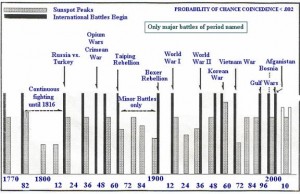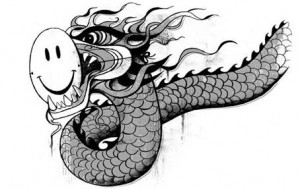Cambodian journalists alerted on climate change
Posted by: | Posted on: November 27, 2011Cambodian journalists alerted on climate change
23.11.2011
Average Cambodians associated climate change with deforestation, disease and increasing temperature, whereas Cambodian NGO workers saw it as global increase in carbon dioxide emissions and deforestation, said BBC World Trust research officer.
Mr. Trak Peaseth shared this message at a UNESCO climate change training to local journalists in Cambodia. He also emphasized the need for free and easy access to information regarding climate change in Cambodia.
A Climate Change Training Project funded by UNESCO and implemented by the Cambodian Center for Independent Media (CCIM) was recently held in Phnom Penh including a field trip to provide direct experience on climate change in Koh Kong organized by the International Union of Conservation of Nature (IUCN).
How China can defeat America
Posted by: | Posted on: November 22, 2011The New York Times, Op-Ed Contributor
By YAN XUETONG
Published: November 20, 2011
It was perhaps the greatest period for Chinese thought, and several schools competed for ideological supremacy and political influence. They converged on one crucial insight: The key to international influence was political power, and the central attribute of political power was morally informed leadership. Rulers who acted in accordance with moral norms whenever possible tended to win the race for leadership over the long term.
- Times Topic: International Relations
WITH China’s growing influence over the global economy, and its increasing ability to project military power, competition between the United States and China is inevitable. Leaders of both countries assert optimistically that the competition can be managed without clashes that threaten the global order.
Most academic analysts are not so sanguine. If history is any guide, China’s rise does indeed pose a challenge to America. Rising powers seek to gain more authority in the global system, and declining powers rarely go down without a fight. And given the differences between the Chinese and American political systems, pessimists might believe that there is an even higher likelihood of war.
I am a political realist. Western analysts have labeled my political views “hawkish,” and the truth is that I have never overvalued the importance of morality in international relations. But realism does not mean that politicians should be concerned only with military and economic might. In fact, morality can play a key role in shaping international competition between political powers — and separating the winners from the losers.
Singapore pledges S$50m to narrow ASEAN gap
Posted by: | Posted on: November 21, 2011
The IAI aims to help member states such as Cambodia, Laos, Myanmar and Vietnam narrow the development gap to achieve the vision of an ASEAN Community
by 2015. Giving an overview, Mr Lee noted the global economy remained vulnerable with problems in the European Union and the US economy still weak with low growth and
low unemployment. He said ASEAN must cooperate to weather the storm. He said this can be done in three ways – achieving the vision of an ASEAN Community by 2015, enhancing ASEAN connectivity and strengthening links with the rest of the world.
Singapore pledges S$50m to narrow ASEAN gap
By S Ramesh |
BALI, Indonesia: Singapore announced an extension of its contributions to the Initiative for ASEAN Integration (IAI) for another four years from 2012 to 2015,
totalling S$50 million.
Revealing this during the plenary session of the ASEAN Summit in Bali, Prime Minister Lee Hsien Loong said this will be the country’s fourth pledge to the IAI.
















